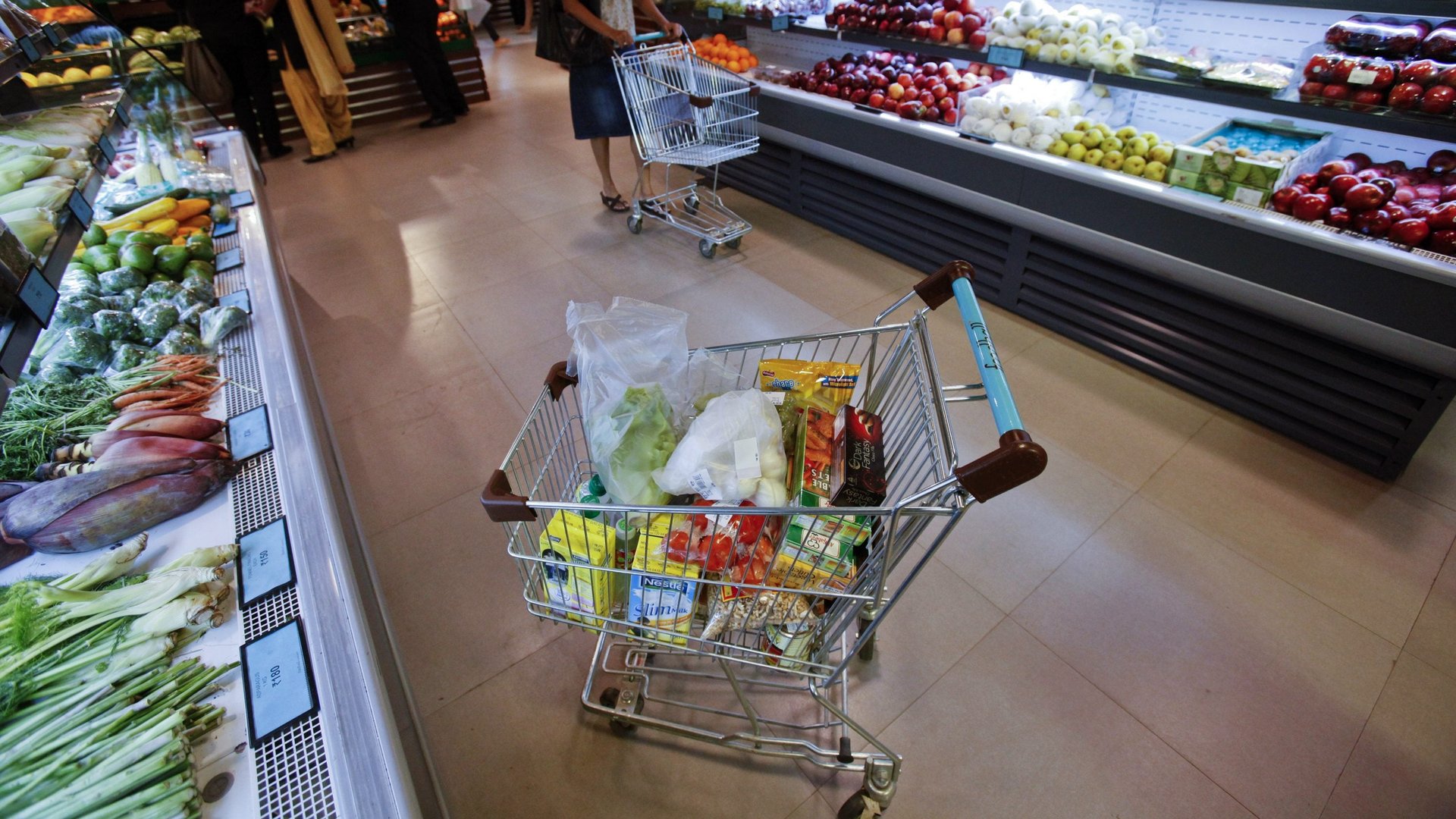Why Walmart isn’t getting to play India’s $670 billion retail game
Walmart has been doing business in India for close to a decade now. But the world’s largest brick and mortar retailer is yet to open its signature stores to tap the country’s $670 billion (pdf) retail market, like those it operates in other parts of the world.


Walmart has been doing business in India for close to a decade now. But the world’s largest brick and mortar retailer is yet to open its signature stores to tap the country’s $670 billion (pdf) retail market, like those it operates in other parts of the world.
That’s because the Indian government is still wary of multi-brand retail, even though it has relaxed the foreign investment policy for single-brand retailers like IKEA and Uniqlo. This, despite reforms in India’s big-box retail policy—as opposed to reforms in other formats—having the potential to attract more investments into Asia’s third-largest economy.
“There was always a case to open up multi-brand retail in India,” said Mohit Bahl, a KPMG India partner for retail. “While local companies have been successful in this business, you need deep pockets and investments to set up a retail infrastructure in a market like India—i.e. in logistics and supply chain.”
The market
India’s retail market is largely unorganised with a bulk of households still buys daily-use items from small mom-and-pop stores. Retail chains such as Big Bazaar, D-mart, Spencer’s, and Reliance Retail have built up sizeable businesses serving the country’s urban population through supermarkets and hypermarkets. These retailers contribute nearly 10% to the country’s organised trade, even as e-commerce companies such as Amazon, BigBasket, and Flipkart have been bolstering their business in India.
However, foreign big-box retailers “could help India’s retail market by bringing in new technologies, retail formats, and create jobs,” said Aashish Kasad, EY India’s tax leader for consumer products and retail. “Consumers, on the other hand, will have a far better experience.”
To be sure, India opened up gates for 51% FDI in multi-brand retailing under the Congress-led government in 2011. Under this rule, foreign investors must bring in a minimum investment of $100 million. However, few firms have opted for this route till now.
In 2013, British firm Tesco joined hands with the Tatas to become the first large supermarket chain to apply under the new policy. Walmart runs 21 wholesale stores—India allows 100% FDI in this segment—because its retail plans with a local partner fell apart. Dutch supermarket chain Spar operates some 20 stores through a licence agreement in collaboration with a homegrown player. Meanwhile, French retailer Carrefour exited India in 2014, citing a lack of policy clarity. Another French retailer, Auchan, exited the same year due to similar reasons, and following differences with its Indian partner.
The reason why India’s FDI policy doesn’t enthuse many is because it comes with clauses on mandatory investments in “back-end” logistics and local sourcing (pdf). There’s also some uncertainty. After all, during the 2014 election campaign, the Bharatiya Janata Party, which heads the current Indian government, had opposed the opening up of the sector, apparently to protect India’s small traders. While the party did not change the previous government’s policy after coming to power, it has not encouraged any new investment in this space. Meanwhile, the food processing ministry has opened up investments in the sector paving some way for an infusion of funds in food-specific retail.
In any case, fears over local small businesses being hit are misplaced, said Technopak Advisors managing director Arvind Singhal. Opening up of the sector, he said, will only attract more investment and spruce up local sourcing.
“The big impact of this policy will be felt when it comes with no strings attached,” said Singhal. “Because it isn’t just about the entry of foreign retailers, it is also about Indian retailers accessing foreign capital.”